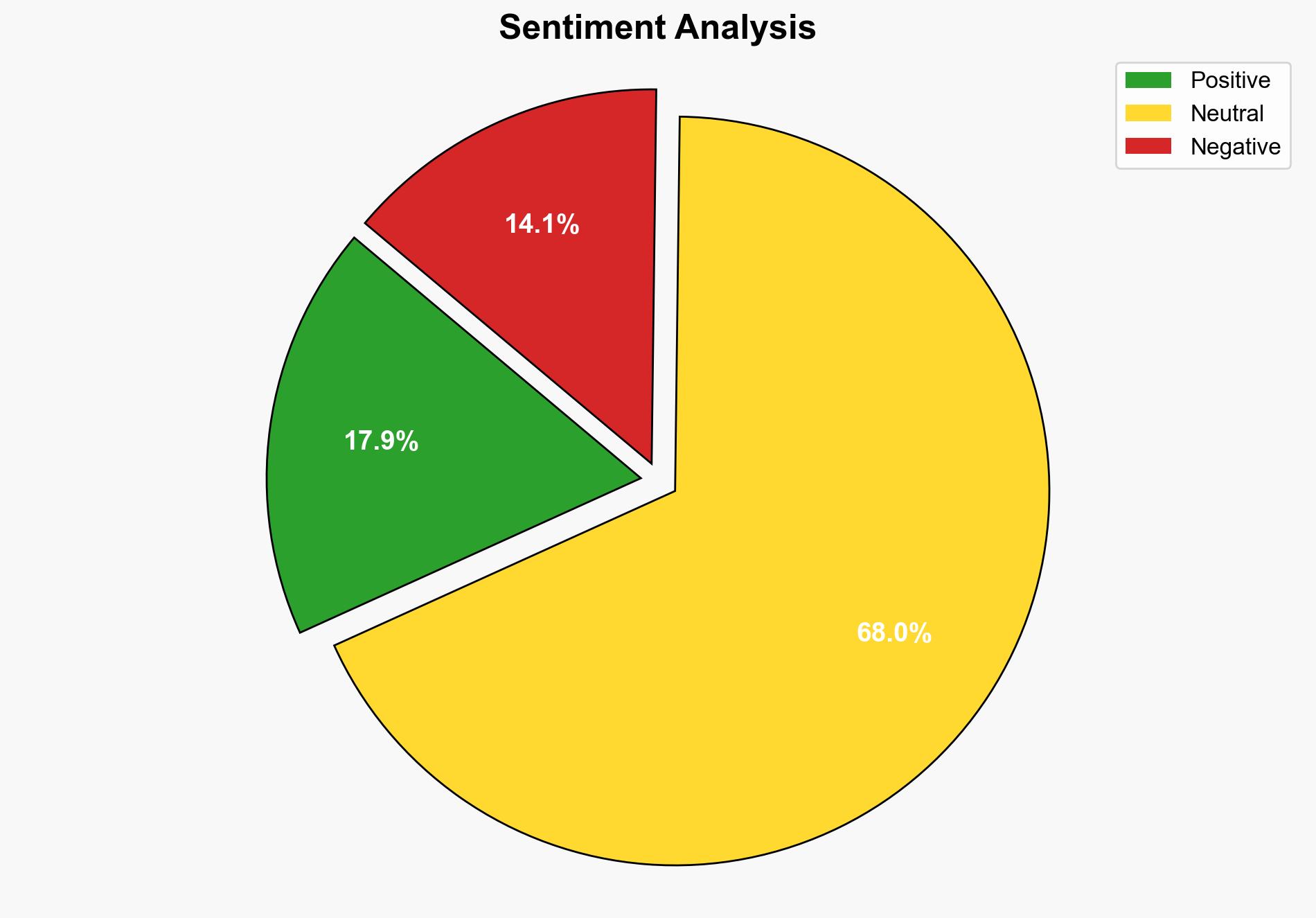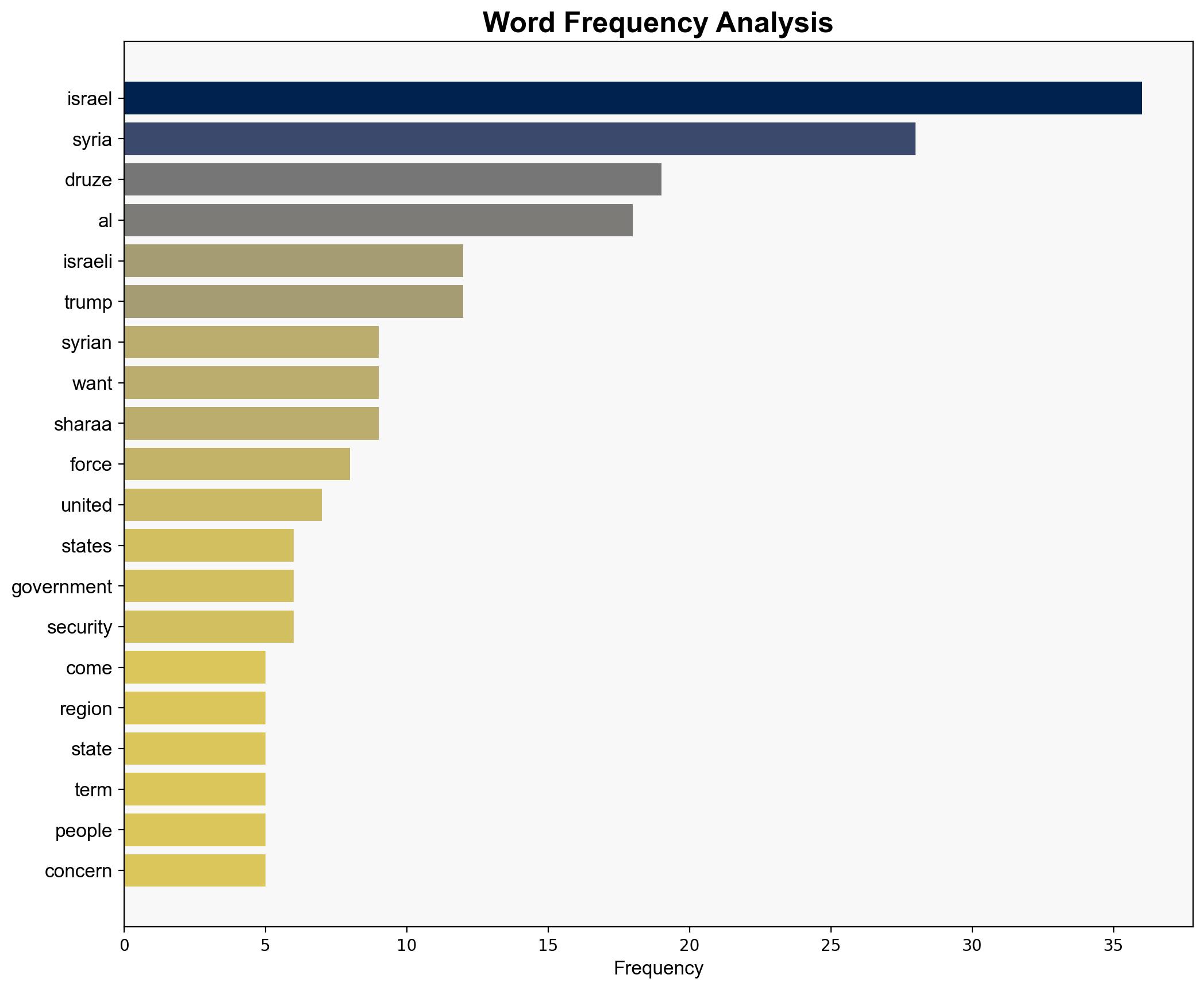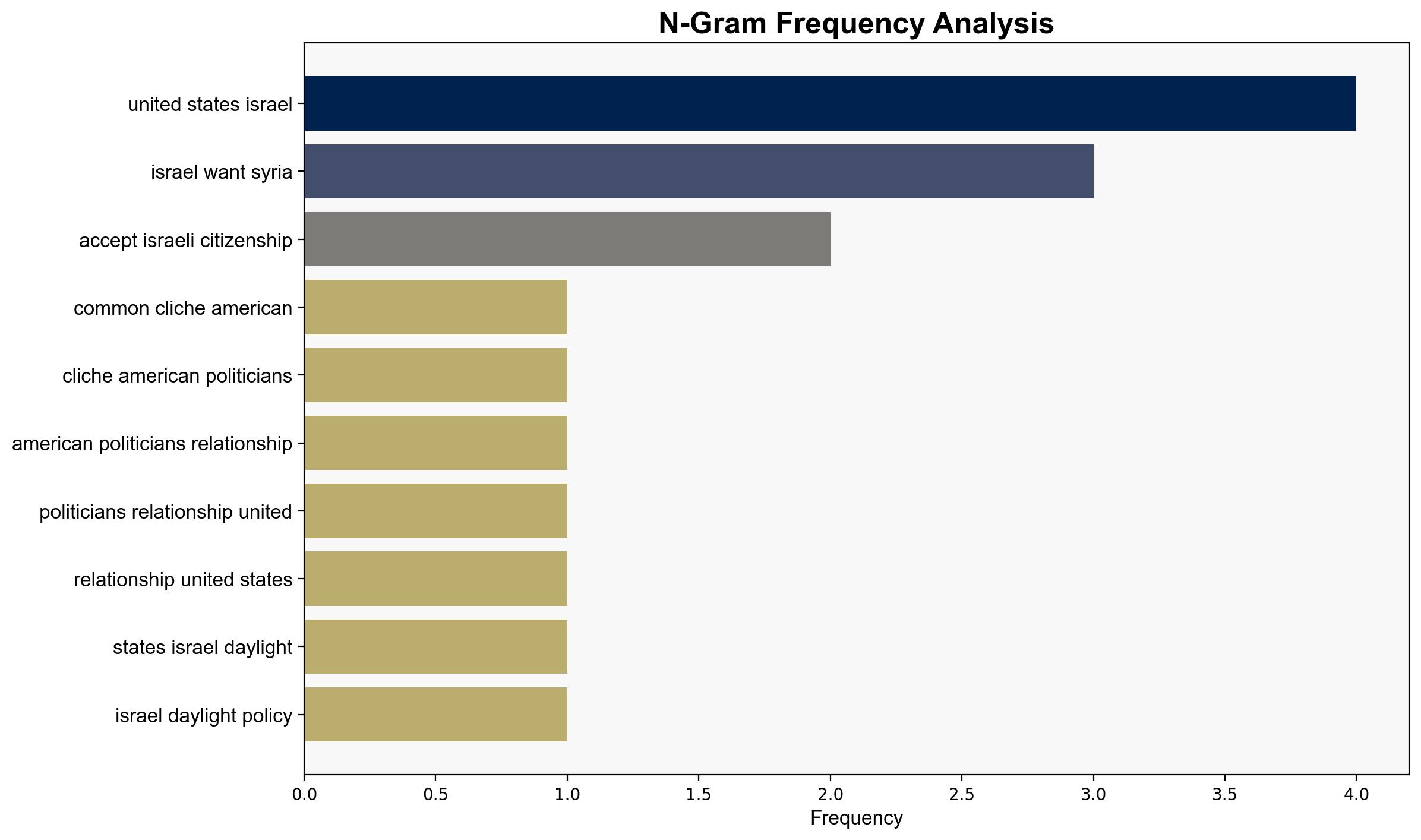Understanding Israel and Trumps conflicting agendas in Syria – Mondoweiss
Published on: 2025-07-26
Intelligence Report: Understanding Israel and Trump’s Conflicting Agendas in Syria – Mondoweiss
1. BLUF (Bottom Line Up Front)
The most supported hypothesis suggests that Israel’s actions in Syria are driven by security concerns and territorial ambitions, which conflict with the United States’ strategic goals under the Trump administration. This divergence could lead to increased regional instability. Confidence level: Moderate. Recommended action: Engage in diplomatic efforts to align U.S. and Israeli strategies to prevent further escalation.
2. Competing Hypotheses
1. **Hypothesis A**: Israel’s actions in Syria are primarily motivated by security concerns, including the protection of the Druze population and countering Iranian influence. This aligns with Israel’s historical security-driven policies.
2. **Hypothesis B**: Israel’s actions are part of a broader strategy to expand territorial control and establish regional hegemony, leveraging security concerns as a pretext. This hypothesis suggests a long-term strategic divergence from U.S. goals in the region.
Using ACH 2.0, Hypothesis B is better supported by the evidence of Israel’s territorial ambitions and actions that contradict U.S. ceasefire efforts.
3. Key Assumptions and Red Flags
– **Assumptions**: Hypothesis A assumes Israel’s primary motivation is security, not expansion. Hypothesis B assumes Israel’s actions are strategically calculated for territorial gain.
– **Red Flags**: The lack of explicit U.S. condemnation of Israeli actions suggests possible tacit approval or strategic ambiguity. Inconsistent narratives about the Druze population’s protection raise questions about Israel’s true intentions.
– **Blind Spots**: Potential U.S. internal policy disagreements on handling Israeli actions in Syria are not fully explored.
4. Implications and Strategic Risks
– **Regional Instability**: Diverging U.S.-Israel agendas could exacerbate tensions in Syria, complicating peace efforts.
– **Geopolitical Risks**: Increased Israeli aggression might provoke Iranian retaliation, escalating into broader regional conflict.
– **Psychological Impact**: Perceived U.S. support or indifference to Israeli actions could undermine U.S. credibility in the region.
5. Recommendations and Outlook
- **Mitigation**: Initiate diplomatic dialogues between U.S. and Israeli officials to align strategies and clarify mutual goals in Syria.
- **Best Case**: Successful U.S.-Israel coordination leads to a stable ceasefire and reduced Iranian influence.
- **Worst Case**: Continued Israeli actions provoke Iranian countermeasures, leading to regional conflict.
- **Most Likely**: Ongoing tensions with sporadic escalations, requiring continuous diplomatic management.
6. Key Individuals and Entities
– Benjamin Netanyahu
– Donald Trump
– Syrian Government
– Druze Community
7. Thematic Tags
national security threats, regional focus, geopolitical strategy, Middle East conflict




